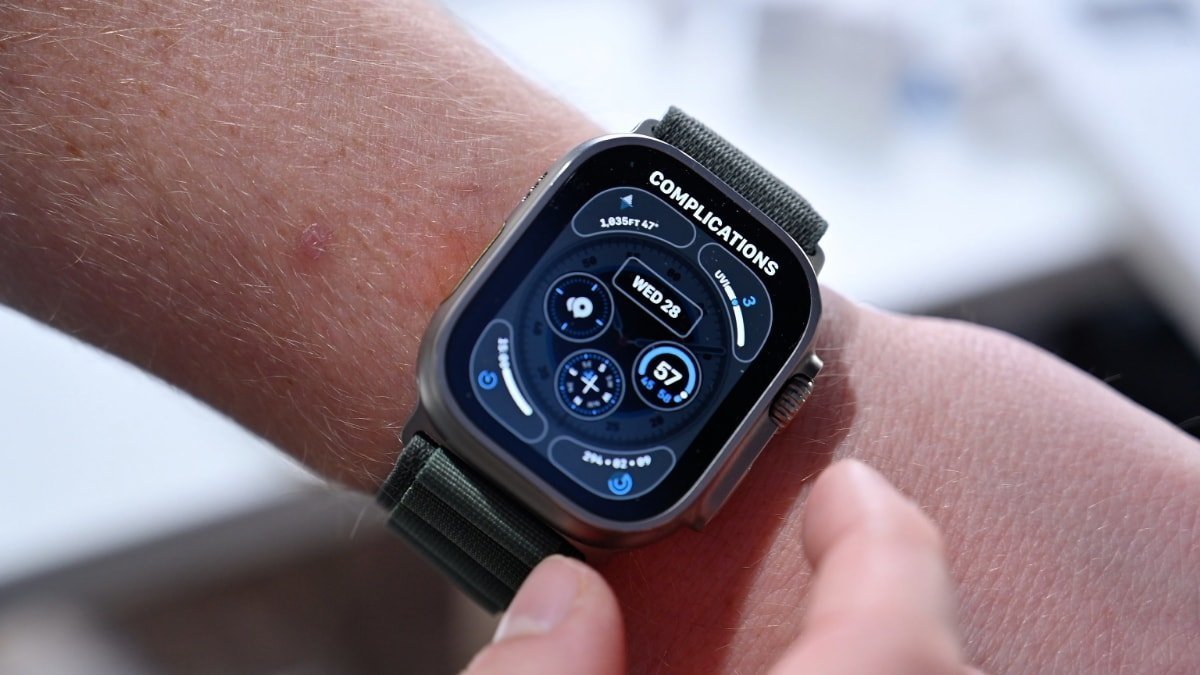Apple Watch Series 9 will get a big speed boost from S9 chip
The Apple Watch Series 9 and second-generation Apple Watch Ultra should see a considerable increase in performance, with 2023's wearable launches set to have a much better chip powering it.

Apple Watch Ultra
Apple's fall release lineup is anticipated to include the Apple Watch Series 9, among other items. For 2023, customers who buy the new models may end up seeing higher levels of performance when using the devices.
In the "Power On" newsletter for Bloomberg on Sunday, Mark Gurman writes that Apple's lineup of Apple Watch models will consist of three releases this fall. 41Mm and 45mm Series 9 models are on the way, alongside a second-generation Apple Watch Ultra.
An updated Apple Watch SE isn't expected, due to it apparently being on a two-year upgrade cycle and having last been updated in 2022.
For the new models, Gurman reiterates a previous rumor that there will be a "fairly sizable performance bump" through the use of the S9 processor. While the S7 to S8 update didn't offer the performance boost people tend to expect, Gurman insists it will be the first time since the Series 6 that "significant speed improvements" will be included.
Gurman previously claimed the chip could be based on the A15 Bionic. He has also insisted that the release would include big hardware changes to accompany the release of watchOS 10.
Gurman, also offers a small detail about the original Apple Watch Ultra, as Apple apparently tested a dark titanium version. While it was cancelled because "designers didn't like the appearance," a 2023 revival of the option could still "theoretically" happen.
Read on AppleInsider

Comments
I do think the latest Apple Watch Ultra is a near perfect watch from a functional standpoint, at least when you consider the limits of currently available battery technology.
One thing I really like about the Ultra is that it comes in one model that has everything I want bundled in for one reasonable price without having to plow through any choices other than the band. When I've spec'd out previous versions with stainless and sapphire I basically ended up paying about the same price as an Ultra. For example, a Series 8 spec'd out with stainless, 45 mm, GPS+Cellular, and sport band is $749.00 USD. The "base model" (and only model) Ultra with an Ocean band is $799.00 USD. In my opinion, the extra $50.00 USD for all of the benefits and features the Ultra offers over the stainless Series 8 is the deal of the decade.
The Series 8 is definitely more elegant and less tech-geeky than the Ultra, but from a feature and performance standpoint the Ultra is a slam dunk. If my Series 5 holds up and perhaps gets a new battery when needed, I'd keep it around even if I buy an Ultra for those times when I don't want to look like I'm heading out to sea for a shark encounter, queuing up for a triathlon, or on my way to a Star Trek convention.
Maybe Apple could reduce the number of Apple Watch variations to gain some economies in their manufacturing process, and who knows, perhaps pass along some of those savings to buyers even if in the form of avoiding or delaying the inevitable price hikes that are soon coming to an Apple Store near you.
I want my watch to do more things. Yes, battery life is important but that comes with a better, faster, more efficient processor.
My 4 year old Apple Watch works fine right now NOT because the processor is soooo amazing...it's because apple had to "de-feature" it and focus on none processor upgrades over the years because there was simply no space available for the lower NM (5 or 3) chip processing. You see Apple Watch has a 10nm designed chip...
Basically said, the Apple Watch process is running on iPhone 8 tech.
New Samsung watches are now running on 5nm chips...
To answer your questions...Apple is moving it to the A12 processing (7nm) which will increase speed up to 15% and 50% energy-efficient.
Which would mean the knew watches will be only 35% faster than my five year old Apple watch 4.
Unless they have a major sensor addition, I'm waiting for 5nm processor. That should roll with 90% speed bump and a roughly 120% increase in energy-efficiency.